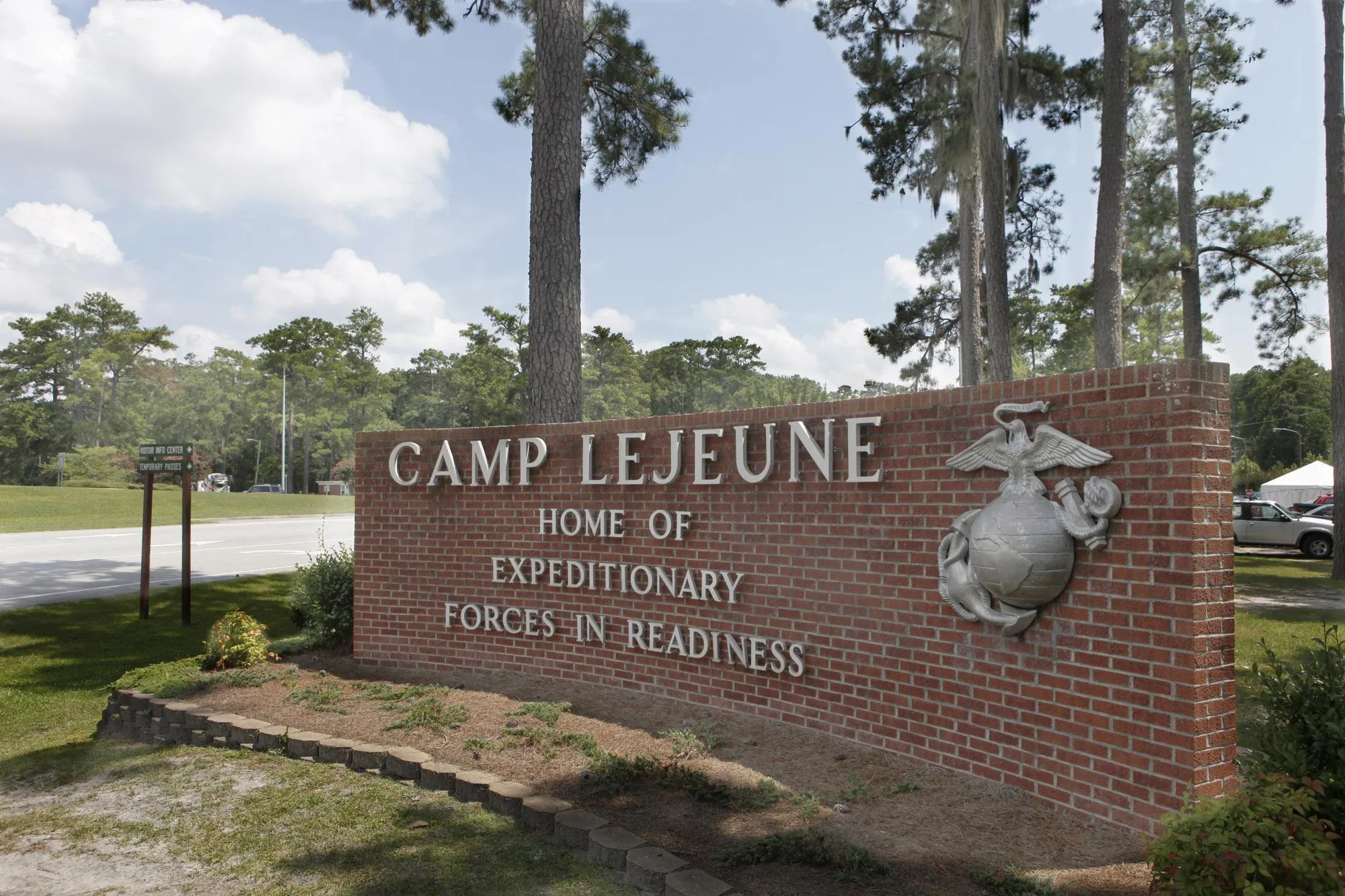CampLejeuneLawsuit Eligibility
Camp Lejeune is a Marine Corp base in North Carolina, established in 1941 and opened in 1942, the base has been the center of an ongoing series of lawsuits when it was discovered that two of the post’s water treatment systems had been distributing drinking water contaminated with Volatile Organic Compounds (VOC) for nearly three decades.
VOCs including benzene: Used in the process of manufacturing plastics, resins and nylon, tetrachloroethylene (PCE): a toxic dry cleaning chemical, trichloroethylene (TCE): a metal cleaning solvent and vinyl chloride (VC) had all been detected at levels far exceeding safe guidelines for human consumption.
Individuals and families who resided at Camp Lejeune or air station New River for at least thirty days between August 1953 until December 31, 1987, may be eligible to file suit.

The Camp Lejeune Justice Act
House Resolution 6482 –the Camp Lejeune Justice Act of 2022 passed the Senate on June 16, 2022, and now awaits President Joe Biden’s signature to put it into law. The legislation would suspend the 10-year statute of limitations and provide a two-year window for those injured to file a suit or for those cases previously denied to seek compensation. Once signed, the law will put an end to the loopholes and technicalities the government formerly used to disqualify certain individuals. The government will no longer be able to rely on “Specified Immunity” from Camp Lejeune lawsuits.
Who may be eligible?
Active-duty and
prior military
Dependents
Civil Service and
Civilian contractors
Health conditions linked to
Camp Lejeune water contamination
- Bladder cancer
- Breast cancer
- Brain Cancer
- Leukemia
- Esophageal cancer
- Liver and Lung cancer
- Non-Hodgkin Lymphoma
- Myelodysplastic Syndromes
- Multiple Myeloma
- Cardiac defects
- Fatty Liver disease
- Female infertility
- miscarriages
- Neurobehavioral effects
- Parkinson’s disease
- Renal Toxicity
- Scleroderma
If you believe you meet the criteria to be eligible to file a claim against the US government for exposure to toxic chemicals at Camp Lejeune, contact Krause and Kinsman for a free consultation.